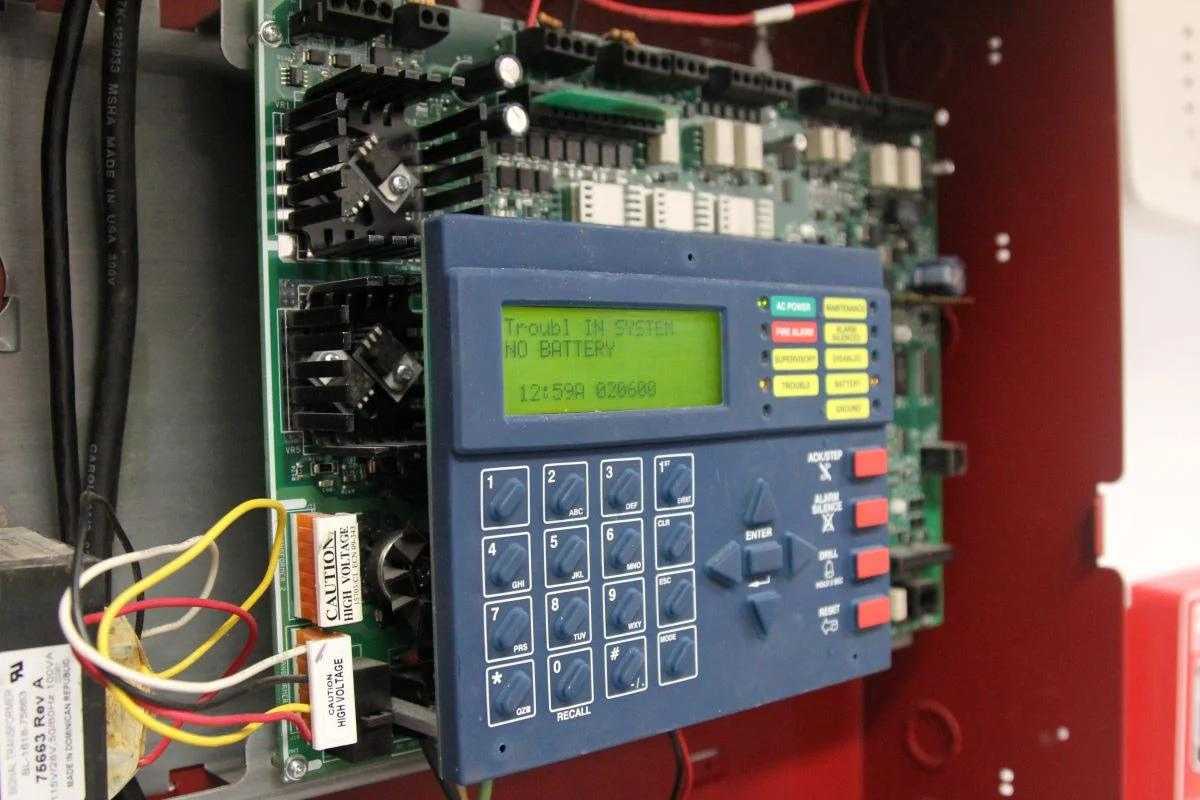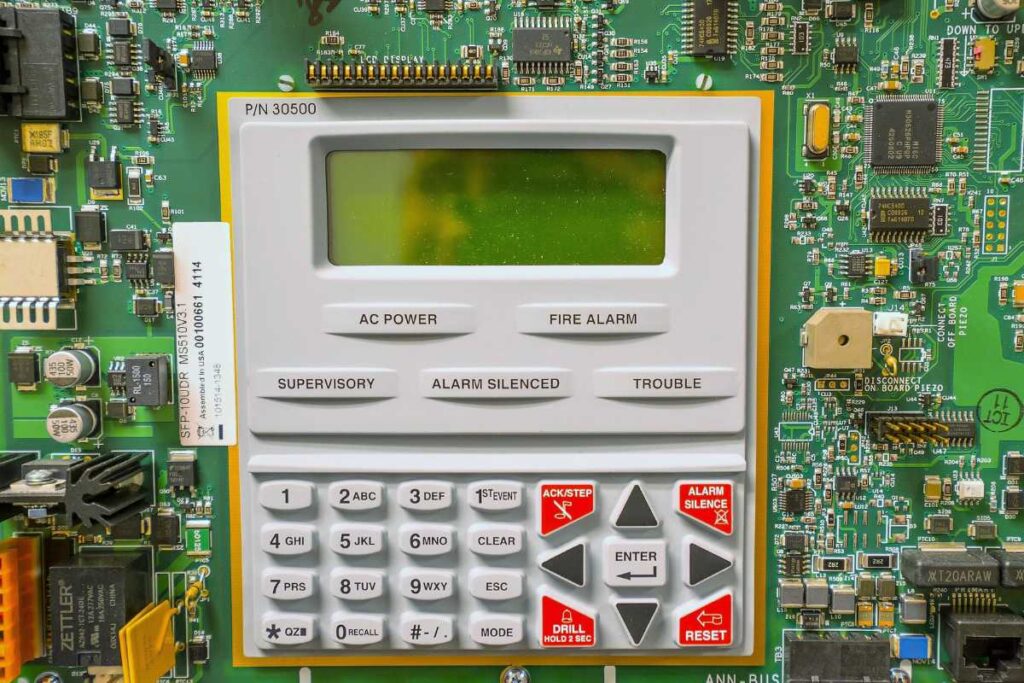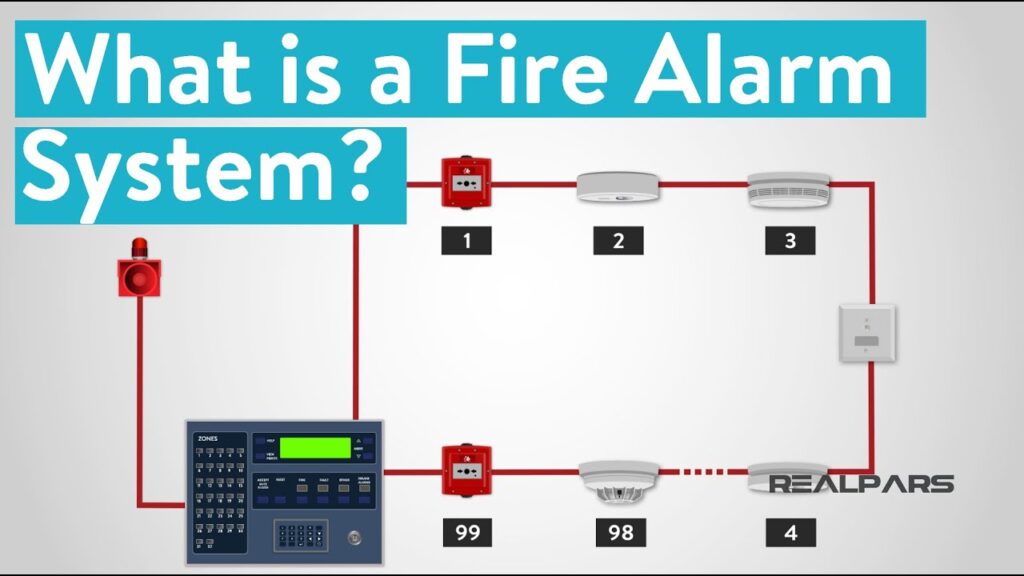Phone:
(701)814-6992
Physical address:
6296 Donnelly Plaza
Ratkeville, Bahamas.

A fire alarm panel is the central control unit for a fire alarm system. It monitors and manages all connected fire detection devices.
Fire alarm panels are crucial for building safety, ensuring timely alerts during fire incidents. These systems typically include smoke detectors, heat sensors, manual call points, and alarm signaling devices. Their primary function is to detect signs of fire, like smoke or heat, immediately initiate an evacuation alarm, and often notify emergency services.
By integrating various components, fire alarm panels help minimize property damage and save lives by providing early warning and prompt emergency response. Safety professionals depend on these systems for real-time monitoring, quick identification of fire locations, and maintaining building fire compliance standards.

Imagine the heart of a safety system in a building. A fire alarm panel does that job. It watches for fires. It warns people. It tells them to get to safety. It’s the brain behind keeping everyone safe from fire dangers. People can trust it to work when needed.
The fire alarm panel has key jobs. It checks fire sensors. It makes alarms ring. It can also tell firefighters where the fire is. Here are some of the main tasks it does:
Not all panels are the same. They come in different kinds. Each building may need a different type. Some types are:
| Conventional | Addressable | Hybrid Systems |
|---|---|---|
| Basic. Good for small places. | Smart. Knows the exact fire spots. | Combine both types. Very flexible. |
Simple buildings often use conventional panels. Bigger, more complex places use addressable ones. Hybrid systems are for buildings that need flexibility.
Understanding fire alarm panels requires knowledge of their key components. These components are the brain and the senses of the fire alarm system, ensuring safety and timely responses in case of a fire.
Let’s explore the most essential parts of a fire alarm panel.
The control unit acts as the brain of the fire alarm panel. This crucial component monitors the system’s status and processes signals from detectors and sensors.
It also supports manual triggers, like pull stations. The control unit manages all the following tasks:
A power supply provides the energy needed for the system to work. It has two parts:
Notification appliances alert occupants to a fire. They convert the control unit’s signals into audible and visual warnings.
Different types of notification appliances include:
| Type | Description |
|---|---|
| Horns | Emit loud sounds. |
| Strobes | Flash bright lights. |
| Speakers | Provide voice instructions. |
The heart of any building’s safety measures is the fire alarm panel. It determines the quick response during a fire emergency. It’s crucial to know the types of panels available.
Each type caters to specific needs and building layouts. Let’s explore these types.
Conventional fire alarm panels are the most traditional form. They divide the building into zones. The panel identifies which zone the fire is in. Yet, it doesn’t pinpoint the exact location.
Addressable fire alarm panels offer precise information. They show the exact device triggering the alarm. This feature benefits large buildings. These panels are smart and efficient.
Hybrid systems combine the best of both conventional and addressable technologies. They suit buildings that need varied approaches.
At the heart of building safety, you find the fire alarm panel. It’s more than just a collection of lights and sounds. Let’s dive deep into the Operational Insights of fire alarm panels. These systems are lifesavers, helping us spot dangers early on. Understanding them makes our places safer.
A fire alarm panel is the brain behind the alarm system. It’s divided into sections called alarm zones. Here’s what makes zones so vital:
Signaling is how the panel talks to us. It can send out noisy alarms or flash bright lights. These signals are not to scare, but to warn and save lives.
Just like cars, fire alarm panels need check-ups. Here’s why maintenance and testing matter:
By testing regularly, you ensure everyone’s safety. Also, it keeps the panel ready to act at all times.
Sometimes things go wrong. Here are a few common issues with fire alarm panels:
| Issue | Troubleshooting Step |
|---|---|
| False Alarms | Check sensors for dust or debris. |
| Panel Beeping | Look for faults or low battery signals. |
| No Response | Test manual call points and detectors. |
Troubleshooting helps find small problems before they get big. That’s why knowing common issues helps to keep the system reliable.
A fire alarm panel is the brain behind fire safety in modern buildings. Its role extends beyond simple alarms. Ideal integration with building management systems empowers smarter control in emergencies. This ensures safety and efficiency across the facility.
Modern buildings are getting smarter. The fire alarm panel must keep pace. Intelligent building management systems (BMS) interact with fire alarm panels to create a networked safety solution.
Pre-programmed protocols in the fire alarm system trigger specific actions across the BMS. This integration promotes holistic security and safety strategies.
With integrated systems, response to emergencies quickens. Everything from unlocking doors to shutting down gas lines becomes streamlined when the fire alarm panel communicates directly with the building management system.
| Alarm System Signal | BMS Action |
|---|---|
| Smoke Detected | Ventilation adjusted |
| Heat Increase | Fire doors close |
| Manual Alarm Trigger | Emergency lighting activated |
Coordination optimizes emergency services’ ability to navigate and respond. Precise, timely information from the fire alarm panel facilitates a proactive response, minimizing the risk to life and property.
Understanding the ‘Industry Standards and Compliance’ for fire alarm panels is vital. Fire alarm panels serve as the brain of a fire alarm system. They monitor detection devices and initiates alarms.
But to ensure they work properly, they must meet specific industry standards. These standards keep buildings and people safe.
Let’s explore what makes fire alarm panels tick and how they stay compliant.
Regulatory bodies set the rules for fire alarm systems. These organizations create safety standards. Their goal is to prevent harm and losses due to fires.
A fire alarm panel must go through a certification process. This checks if the panel meets the required standards. The process involves different steps:
The certification mark proves that the panel is safe to use. It means the panel has met all the necessary safety standards.

A fire alarm panel displays system status, including active alarms, fault conditions, and battery levels, ensuring prompt emergency response and maintenance actions.
The alarm control panel serves as the central hub that manages, monitors, and communicates the activities of all connected alarm system components.
The two types of fire alarm panels are conventional and addressable systems. Conventional panels are more traditional, while addressable panels offer more advanced features and individual device monitoring.
A fire indicator panel displays the location and status of fire alarms and detectors throughout a building, aiding swift response and safety management.
Understanding the function and significance of a fire alarm panel is crucial for safety. It acts as the brain behind the entire fire detection system, coordinating responses and ensuring timely alerts.
Regular maintenance ensures its reliability in emergencies. Equip your premises with an up-to-date panel and prioritize safety.